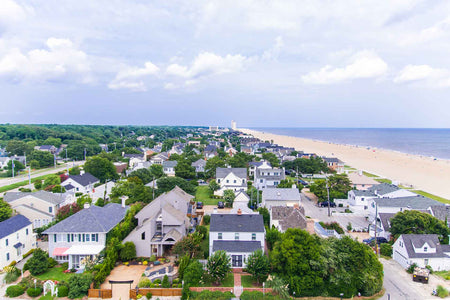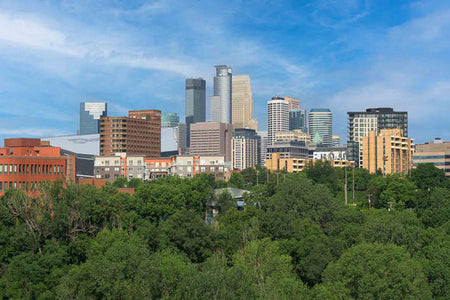Nevada, with its unique blend of desert landscapes, mountainous regions, and bustling urban areas, presents a diverse array of allergens that can affect individuals differently depending on the region. This state's contrasting environments, from the arid, sandy expanses of the Mojave Desert to the cooler, elevated areas of the Sierra Nevada, contribute to the wide variety of plant life and climate conditions. Consequently, this diversity not only beautifies the state but also introduces a range of allergens into the environment.
Understanding the specific allergens prevalent in each part of Nevada, the symptoms they can induce, and the best methods for treatment and management is crucial for both residents and visitors. This knowledge can lead to a more comfortable and enjoyable experience in this vibrant state, whether one is hiking its scenic trails, enjoying its urban amenities, or simply living day-to-day life amidst its natural beauty.
Nevada Allergy Seasons
Living in Nevada means dealing with allergies year-round. From the dry desert air to the pollen from various plants, allergy sufferers in Nevada face a constant battle. Understanding the different allergy seasons in Nevada can help individuals better prepare and manage their symptoms.
Spring: March to May
Spring in Nevada brings blooming flowers and trees, which can trigger allergies in many people. Pollen counts tend to be high during this time, leading to symptoms such as sneezing, itchy eyes, and congestion. It's essential to stay indoors during peak pollen times and keep windows closed to minimize exposure.
Summer: June to August
Summer in Nevada can be brutal for allergy sufferers. Dust and mold spores thrive in the hot, dry climate, exacerbating symptoms for many individuals. Air conditioning can help filter out allergens, providing some relief indoors. Staying hydrated and using saline nasal sprays can also help alleviate symptoms.
Related: Summer Allergies Guide
Fall: September to November
As temperatures cool down in the fall, ragweed becomes a significant allergen in Nevada. Ragweed pollen can travel long distances, leading to widespread allergies. It's crucial to monitor pollen counts and take allergy medications as needed to manage symptoms during this time.
Related: Fall Allergies Guide
Winter: December to February
Winter in Nevada may provide some relief for allergy sufferers, as pollen counts tend to be lower. However, indoor allergens such as dust mites and pet dander can still trigger symptoms. Keeping indoor spaces clean and using air purifiers can help reduce exposure to these allergens.
Common Nevada Allergens By Region
Nevada is known for its diverse landscapes, from the Mojave Desert to the Sierra Nevada mountains. With such varied environments, it's no surprise that the state is home to a wide range of allergens that can trigger allergic reactions in residents and visitors alike.
Las Vegas
In the bustling city of Las Vegas, common allergens include dust mites, pollen from desert plants like sagebrush and ragweed, as well as mold spores. The dry climate can exacerbate allergies, making it important for residents to take precautions such as using air purifiers and keeping indoor spaces clean.
Reno
Located in the high desert of northern Nevada, Reno is prone to similar allergens as Las Vegas, including dust mites, pollen, and mold. Additionally, the proximity to Lake Tahoe can introduce allergens from pine trees and other mountain vegetation.
Carson City
As the capital of Nevada, Carson City experiences allergens similar to Reno, with dust mites, pollen, and mold being common triggers for allergies. Residents in this region may also be affected by allergens from juniper trees and other native plants.
Rural Areas
In the more rural areas of Nevada, residents may encounter allergens from agricultural activities, such as pollen from crops like alfalfa and hay. Additionally, exposure to animals like horses and cows can trigger allergic reactions in some individuals.
Treating Seasonal Allergies
Allergic reactions to tree pollen, ragweed pollen, and other allergy triggers we have mentioned can wreak havoc on your everyday life. Luckily, there are three general ways to fight back– medications, allergen immunotherapy, and lifestyle changes. Each method has its own pros and cons.
Medications
The most widespread allergy treatments are medications, which can be divided into oral and topical treatments.
Oral medications include drugstore pill and liquid allergy medications. Examples include Claritin, Allegra, and Benadryl. Though these medications are easy to take and are partially effective, they also cause significant side effects in many people, especially because the medication is absorbed in the entire body.
Topical allergy treatments, which are predominantly nasal sprays, are the gold standard for treatment. Nasal sprays address symptoms directly at the source, which is inside the nose. Because nasal sprays are only absorbed by the nose, there is little to no absorption by the rest of the body, and so the side-effects tend to be much less than oral medications. Most drugstore nasal sprays only treat one or two allergy symptoms, and often take at least a week to have an effect. Therefore to get relief, you would need to use multiple nasal sprays.
Despite the prevalence of single-symptom nasal sprays, there is a prescription nasal spray available on the market that treats all of your allergy symptoms in just one bottle. Keep reading to learn more about Allermi!
Allergy shots/drops
Allergen immunotherapy, better known as allergy shots or drops, is a treatment in which your immune system is exposed to small doses of specific reactive allergens over time through injections or drops under the tongue. This encourages your immune system to build natural immunity against your individual triggers.
Unfortunately, it is an expensive, time-consuming process that can take a least a year to have an effect.
Lifestyle changes
The final way to address seasonal allergies is to make lifestyle changes. Using an air purifier in your bedroom, avoiding extended periods of time outdoors, keeping your bedroom windows closed during high pollen seasons, and washing bed sheets frequently are all things you can do to minimize allergy flare-ups.
It is important to keep in mind that lifestyle changes, while they can help, are by themselves not a viable option for those with severe allergies.
Allergy Season in Nevada FAQ
Here's are some frequently asked questions to help you navigate allergy season in Nevada:
What are the common allergens in each region of Nevada?
In Northern Nevada, tree pollen is a significant allergen, especially from juniper, pine, and cottonwood trees. In Southern Nevada, desert plants like sagebrush and ragweed are prevalent allergens. The Las Vegas area also experiences high levels of dust mites due to the arid climate.
What are the typical symptoms of allergies in Nevada?
Common allergy symptoms in Nevada include sneezing, nasal congestion, itchy and watery eyes, coughing, and wheezing. Some individuals may also experience skin rashes or hives as a result of allergen exposure.
Related: Grass Rash: Causes, Symptoms, and Treatment
Do allergens in Nevada change with the seasons?
Yes, allergen levels in Nevada can fluctuate with the seasons. Spring and fall tend to be peak seasons for pollen allergies, as trees and grasses release pollen into the air. Summer can bring high levels of grass pollen, while winter may see an increase in indoor allergens like dust mites due to closed windows and heating systems.
How can allergies be treated in Nevada?
To alleviate allergy symptoms in Nevada, individuals can use over-the-counter antihistamines, nasal corticosteroids, decongestants, eye drops and of course…Allermi. Allergy shots, or immunotherapy, may be recommended for those with severe allergies that do not respond to other treatments.
Customized Allergy Treatment at Home
Using multiple over-the-counter allergy treatments is not ideal for getting through allergy season in Nevada. Skip the drugstore and get a personalized all-in-one allergy treatment from the comfort of your home.
Allermi is a customized allergy nasal spray designed by experienced, board-certified allergists to solve your unique seasonal allergy symptoms. The Allermi formula is backed by science to give you the most effective allergy treatment for your individual allergy symptoms.
The best part? Allermi nasal spray is easy to use and delivered to your door in Nevada.









